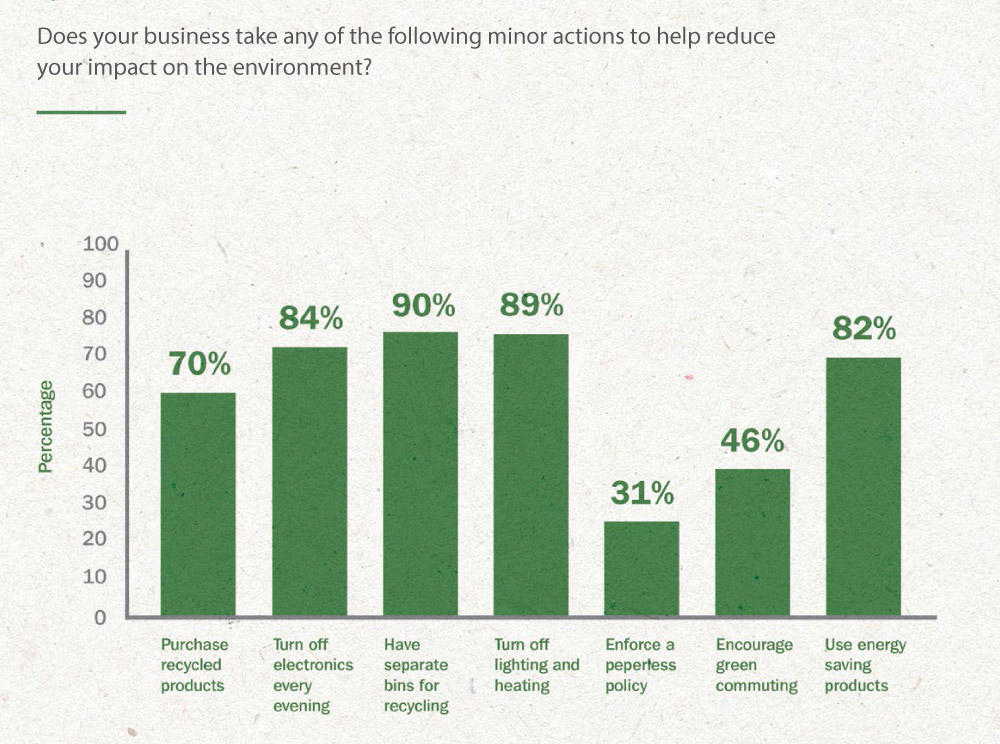In an era marked by increasing environmental awareness, businesses play a pivotal role in shaping a sustainable future. From carbon emissions to resource consumption and waste generation, corporate activities significantly contribute to environmental degradation. Here are 7 actionable tips to Minimize the Environmental Impact of your Business and to adopt eco-friendly practices, minimizing your positive impact on the environment.
Implement Sustainable Practices:
Embarking on a journey towards sustainability involves a comprehensive review of natural resource usage within your operations. Identifying areas where resources are wasted or underutilized sets the stage for creating a circular economy within your business. Utilizing sustainable packaging materials, such as paper and cardboard, minimizes environmental impact and contributes to waste reduction. Optimizing production processes for efficiency further decreases the demand for virgin raw materials, fostering a commitment to sustainability.
Reduce Energy Consumption:
A strategic approach to energy usage is crucial for businesses aiming to minimize their environmental footprint. Simple measures, like turning off lights when not in use and employing energy-efficient appliances, contribute significantly to energy conservation and cost savings. Additionally, transitioning to cleaner energy sources such as solar, wind, and hydro power diminishes reliance on fossil fuels, mitigating greenhouse gas emissions.
Encourage Employees to Adopt Environmentally Friendly Practices:
Sustainability in the workplace begins with employee involvement. Businesses can foster a truly sustainable culture by educating employees about the environmental impact of their choices and encouraging eco-friendly practices. The U.S. Environmental Protection Agency recommends developing actionable steps to raise awareness and inspire employees to align with the company’s sustainability vision.

Partner with Environmentally Conscious Organizations:
Collaborating with like-minded organizations amplifies the impact of sustainability efforts. By partnering with suppliers who share similar sustainability goals, businesses can ensure the sourcing of environmentally friendly products. Participation in green business certification programs and sustainability initiatives further aligns businesses with overarching environmental goals.
Implement Green Supply Chain Management:
Green supply chain management entails coordinating production processes with minimal environmental impact from raw material procurement to final product delivery. Assessing suppliers’ sustainability practices, implementing green production processes, and tracking sustainability performance contribute to a holistic and eco-conscious supply chain. This approach ensures sustainability at every stage of the business operation.
Measure and Monitor Environmental Performance:
Regularly measuring and monitoring environmental performance provides businesses with valuable insights into areas for improvement. By setting environmental goals focused on reducing energy consumption, water usage, and waste generation, companies can actively work towards minimizing their environmental impact and footprint. This commitment to continuous improvement reinforces the sustainability ethos within the organization.
Engage with Customers on Environmental Sustainability:
Transparent communication with customers about a business’s sustainability efforts is paramount. Sharing the importance of environmental sustainability and the steps taken to minimize impact fosters a sense of shared responsibility. Encouraging customers to adopt sustainable behaviors, such as proper waste disposal or participation in recycling programs, builds a stronger bond with the business and cultivates a collective commitment to eco-friendly practices.
Minimizing the negative environmental impact of business operations on the environment is a collective responsibility. By implementing sustainable practices, reducing energy consumption, engaging employees, partnering with environmentally conscious organizations, adopting green supply chain management, measuring and monitoring environmental performance, and actively involving customers in sustainability initiatives, businesses can become catalysts for positive environmental change. These actions not only benefit the planet but also enhance a company’s reputation, customer loyalty, and long-term success in a world that increasingly values environmental responsibility.






